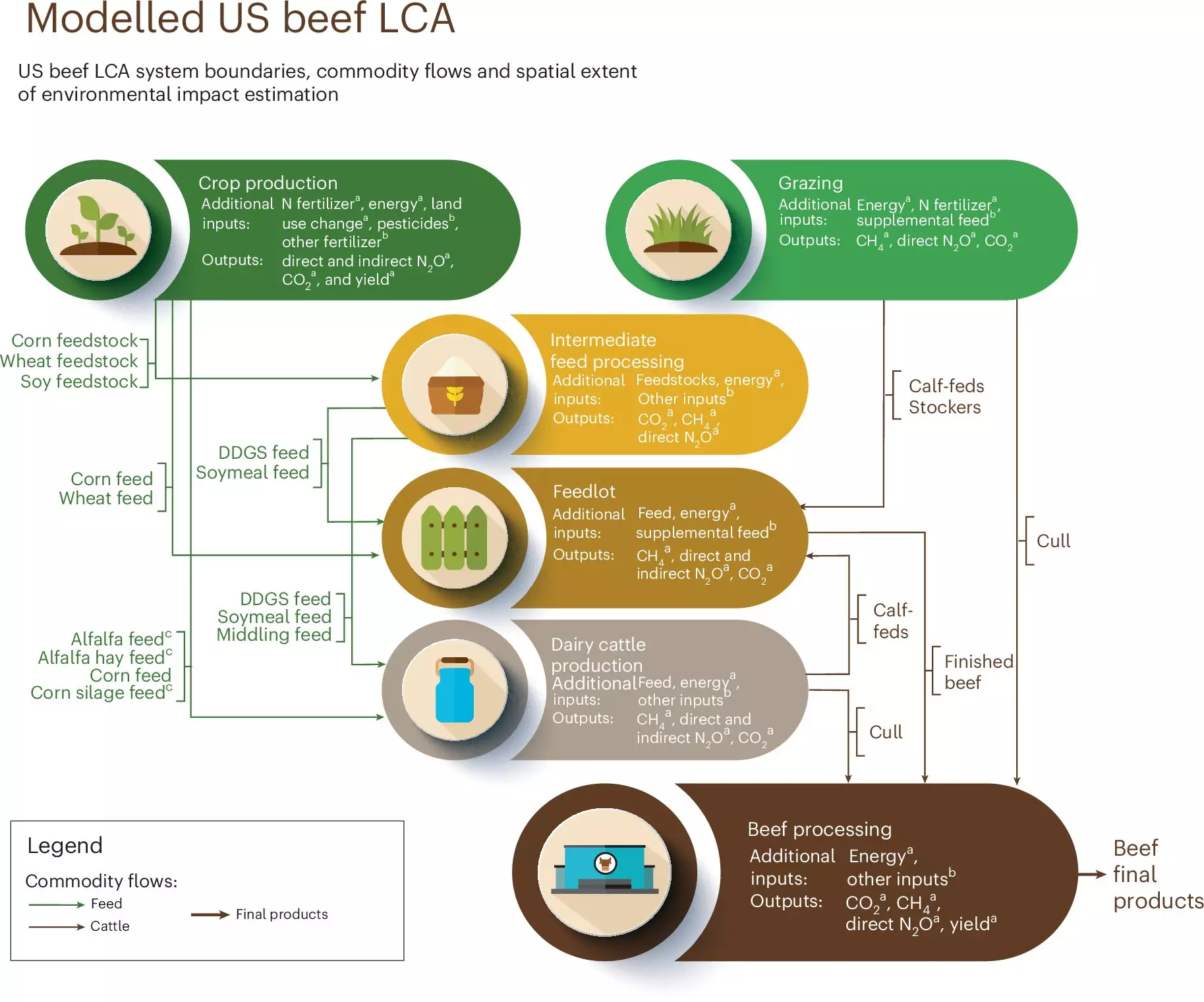The correlation between agricultural practices and greenhouse gas emissions has become increasingly apparent in recent decades, particularly regarding the beef industry. Human activities, primarily since the mid-20th century, have significantly contributed to climate change, with agricultural operations, especially beef production, standing out as major culprits. In the United States, the beef sector accounts for approximately 3.3% of the nation’s total greenhouse gas emissions, a statistic that calls for immediate action and innovative solutions. As researchers and industry experts delve deeper into this issue, they are discovering ways to curb these emissions while maintaining the viability of the beef supply chain.
A groundbreaking study conducted by the University of Minnesota’s Institute on the Environment (IonE), alongside The Nature Conservancy, has shed light on practical measures that could enable the U.S. beef industry to decrease its greenhouse gas emissions by up to 30%. This study, published in *Nature Food*, takes a unique approach by assessing the environmental impacts of the beef supply chain on a county-by-county basis. Through meticulous analysis, researchers pinpointed specific geographical hotspots where emissions are particularly high and identified opportunities for improvement.
Rylie Pelton, the lead author of the research, emphasizes the importance of fine-tuning strategies to fit regional characteristics. The findings highlight that nearly 258 million metric tons of greenhouse gases are generated annually by the beef sector, emphasizing the weight of this issue. The study also revealed that the production of feed—particularly in feedlots—contributes significantly to emissions, predominantly in the Midwest and Great Plains. Conversely, emissions from grazing are more evenly managed across western regions, indicating a need for tailored approaches in different locations.
The researchers explored a variety of alternative practices—42 in total—aimed at mitigating emissions across the supply chain. From innovative grazing strategies to improved feed production and processing methods, many recommendations emerged from the research. Notably, one of the key insights was that nearly one-third of the greenhouse gas emissions associated with beef production could be considerably reduced through the adoption of these practices.
One promising avenue identified involves the addition of trees in southeastern pasturelands, which not only enhances biodiversity but also promotes carbon storage. Similarly, the restoration of degraded wetlands in the Northern Great Plains offers a dual benefit of environmental rehabilitation and emissions reduction. These findings underscore the necessity of sustainable practices as routine protocols within the beef production process.
Kris Johnson, co-author of the study and director of The Nature Conservancy’s North America Agriculture program, asserts that embracing sustainability must become the norm within the beef industry. For ranchers and farming communities, the adoption of sustainable practices can translate into long-term economic security and ecological responsibility. Meeting consumer expectations while achieving climate objectives requires actionable steps—strategies rooted in research that encourages the beef industry to become more environmentally conscious.
The FoodS3 model, developed by IonE, provides a framework to analyze and improve the sustainability of food supply chains, offering a detailed look into where emissions occur and how they can be minimized effectively. By promoting transparency and actionable strategies, the model serves as an essential tool for industry stakeholders looking to align their operations with sustainable practices.
As climate change continues to pose significant challenges, it is imperative that all sectors, particularly agriculture, contribute to mitigating its effects. The U.S. beef industry stands at a crossroads where the need for emission reductions aligns with evolving consumer demands for sustainability. Research that identifies actionable solutions can pave the way for a transformative approach in beef production, ushering in an era that prioritizes both productivity and environmental stewardship.
The journey toward a more sustainable beef industry will not only benefit the environment but can also enhance the livelihood of ranchers and the health of local ecosystems. With concerted efforts, innovative practices, and a commitment to long-term change, the beef industry can lead the charge against climate change, setting an example for other sectors to follow.


Leave a Reply